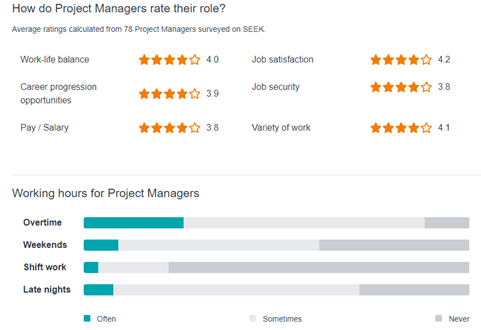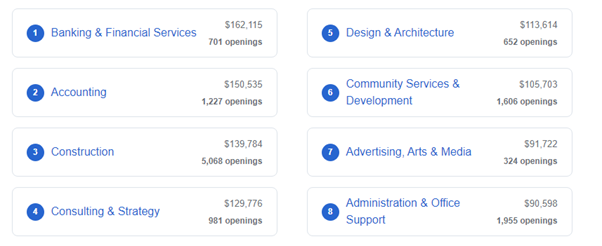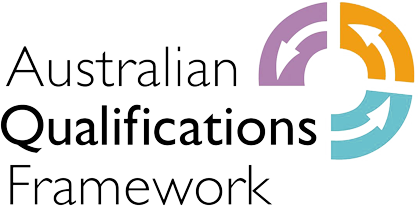A Project Manager leads project planning, manages the team, and ensures successful project delivery. They coordinate all aspects, from ideation to completion. Responsibilities include defining scope, assessing resources, establishing timelines, and developing communication strategies. They oversee the team, manage deadlines, monitor progress, and create status reports. Budgeting, invoicing, and testing are also part of their role. Such, Project Managers coordinate, lead, and oversee projects for successful outcomes.

Skills Needed


AIPM
- Australian institute of project management
- Australia’s leading project management membership
- Advance career by developing skills with AIPM training, mentorship and certification programs
- Enhance network with peers and industry leaders, new job opportunities
- Exclusive benefits like project management templates, industry reports, events, insurance discounts
- Student membership, individual membership, organisation membership
Project management industries and salaries
Average Project Management role

Construction
Soaring prices, regulations, and other concerns make it very tough for project management in the construction industry to profit even under excellent demands. Here is where the value of project managers is felt the most. They must effectively coordinate with numerous stakeholders and resources like architects, engineers, city planners, public works employees, and construction crews for various projects like residential buildings, commercial properties, or industrial facilities.
Their involvement keeps the construction industry on track, from budget formulation to schedule development and managing daily activities throughout the project lifecycle. Besides quality management, contract administration and risk management play a heavy role in their job profile.
Average Salary: between $125,000 and $145,000
Engineering
he various engineering project fields include Mechanical, Civil, Industrial, Aerospace, Chemical, Biomedical, Electrical, Nuclear, Agricultural, and Marine, where project managers are required. They need a degree (sometimes even a Master’s degree) in the specific engineering field of interest coupled with project management knowledge and skills.
Average salary depends on sector of engineering: $130,000 – $170,000
IT
In its entirety, IT covers industries of software, hardware, semiconductors, and internet service providers, as well as projects often relating to the creation of software applications, technological upgrades, computer and network infrastructures, equipment installation or cybersecurity. With such an array of varieties, project managers in the IT sector must possess both technical knowledge and business acumen to understand project planning, costing, and feasibility.
Average salary: $130,000 – $150,000
finance and insurance
Just when finance percolates through all aspects of project management in any sector, the finance sector itself requires efficient finance project managers to maximize productivity and reduce costs. However, their approach is a little narrower than their counterparts in other sectors, focusing on priorities like cash flow projections and earned value management, developing metrics, estimates, and operation plans. They supervise a company’s investments and planning and require skills like financial analysis, budgeting, and forecasting.
While they handle cash flow involving payroll and project-related expenditures, many also develop revenue enhancement strategies. Working closely with high-level or top executives and other influential people, financial reporting is key to their job.
Large insurance companies also hire project managers or consultants for initiatives of high stakes requiring technical considerations as well along with a thorough understanding of risk management imperative for success in this role.
Average salary:$130,000 – $150,000
Healthcare
While compliance and cost are the two obligations of the healthcare industry, both can be addressed with the help of efficient project managers. Hospitals and large clinics need healthcare project managers, but medical equipment manufacturers and pharmaceutical companies also need project managers’ involvement.
Some of the potential projects that healthcare project managers handle could be:
Development of web apps or web portals.
Facilitation of construction of new buildings/departments at a hospital or inclusion of emergency medical services or improved systems.
To fulfill such needs, therefore, specialized field knowledge is required, and hence often, a degree in health management, public health, or any related studies is helpful.
Average salary: $120,000
Marketing
Overseeing marketing campaigns related to any brand, aiming to create a brand identity, spread, and increase brand value is the chief role of the marketing project managers. Without a project manager’s involvement, marketing campaigns risk becoming ineffective, hyped, unorganized, delayed and focus less.
They work in collaboration with designers, copy and content writers, digital and social media specialists, advertisers, and ad agencies. For this, they need a bachelor’s or master’s degree in marketing, communication, PR, and business administration, along with knowledge and skills in project management.
Average salary: $100,000 – $130,000
Manufacturing
In the manufacturing sector needs, the skills of budget management are required as the project managers need to provide estimates on labor and productivity while looking for new clients. Vendor accounts management, vendor and relationship management streamlining production processes keeping in mind the risks, hazards, and safety issues, are other skills that manufacturing project managers bring in.
Average salary: $150,000
Law
Legal project managers oversee processes relating to legal services like budget, timing, and resources required for a litigation team. While a law degree is essential, although not a compulsion, certification in project management will help improve candidacy
Average salary: $75,000
Consulting
Consulting project managers are highly skilled ‘for-hire professionals’ employed or contracted by agencies. Their function is to identify the areas needing improvement in any project and offer actionable insight to help the clients manage their projects. This calls for very high experience at their end, which they have, and they keep expanding with every agency they work with. Usually, they hold an advanced post-graduation degree in management coupled with project management skills, knowledge, and certifications.
Average salary: $130,000
Energy and Utilities
Utility and energy management is observing growth, with hundreds of jobs forecasted to open up due to social, environmental and political pressure. The urgency for exploring environmental-friendly fuel and energy sources is creating new avenues of employment.
Particularly oil and gas sectors are open to innovation and newer ways to conserve or create fuel. The insistence in home countries to find newer opportunities to generate household fuel supply create room for innovation in oil and gas, making these sectors ideal for project managers wishing to create an impactful future.
Apart from experience in Agile project management, coordinating research and effectively communicating goals and vision are the skills required for such project managers of energy production and management.
Large-scale risk management is also required as potential outages due to disaster, delay, or other unforeseen situations could affect an entire community, state or country
Average salary: $170,000
Here are some others we didn’t mention:

Project management software
- web applications that can be used to plan, track, schedule and deliver projects
- allows you to track progress of a project
- team members can record their own progress on specific tasks, identify issues of changes
- overview of all tasks
- automate and simplify
- provides overview of how project is going against the original project plan
- monitor budgets
- GanntPro
- Good for smaller teams
- No customizable dashboard or reporting
- Affordable and saves work history
- Customized fields for specific tasks
- No billing or invoicing
- Gantt charts
- What tasks depend on the completion of other tasks
2. Teamwork
- Intuitive interface
- Billing and invoicing
- Assess team members time and wokload
- Track deadlines
- Send invoices to clients
- 100MB for file storage
- Includes priority levels
- Can track workloads and see progress
3.Celoxis
- Multiple team members on a project
- Wide range of reports and budgeting, resource management, and time tracking
- Customizable dashboards
- Burn down charts to show how much work is available on each project
- Track the effects a specific action will have on a budget, tasks, team members and other resources
- Tool to manage budgets
- Enhanced scheduling tools that adjust schedules when you miss a deadline or the date changes
4. Liquid Planner
- Automated and offers scheduling
- Forecast scenarios to help with risk assessment
- Track and schedule work and staff, external partners, and resources
- Custom fields, filtering and cost codes, package dashboards, timesheet reviews and exporting to excel available depending on the plan you choose
5. Proofhub
- Collaborative
- Allows team to discuss visual materials
- Gannt charts. Time tracking, reports, in-app chat, tasks management tools and milestones
AI in Project Management
- Researchers, startups, and innovating organizations, are beginning to apply AI, machine learning, and other advanced technologies to project management, and by 2030 the field will undergo major shifts.
- AI will improve project selection, prioritization, monitor progress, speed up reporting, and facilitate testing
- Role will become more focused on coaching and stakeholder management rather than admin and manual tasks
- Gartner’s research indicates that change is coming soon, predicting that by 2030, 80% of project management tasks will be run by AI, powered by big data, machine learning (ML), and natural language processing
Sources: Indeed, AIPM, Harvard Business Review, Knowledge Hut




